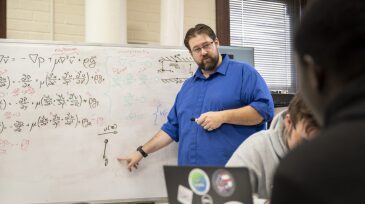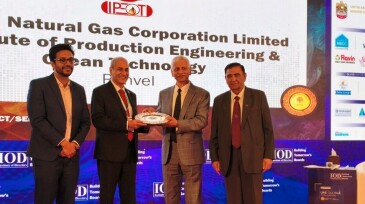Digital Transformation
Digital transformation in oil and gas depends less on adopting advanced technologies and more on maturing data so people and processes can reliably convert raw information into aligned, asset-level value.
Agentic AI can enhance subsurface workflows when its autonomy is deliberately designed around physics, data integrity, and accountable decision-making through architectures that separate reasoning, computation, interpretation, and validation.
Mark your calendars for the first SPE Live featuring the 2025 TWA Energy Influencers.
-
The energy sector is rapidly transforming toward a data-driven, decentralized future where combining human expertise with AI and machine learning unlocks new efficiencies, solves complex challenges, and creates a decisive competitive advantage.
-
AI is transforming oil and gas, but the real change will come from young professionals (YPs) who bridge technology and field expertise. By leading pilots, building networks, and challenging old assumptions, YPs can drive the industry’s digital transformation from within.
-
By integrating AI into every layer of the energy ecosystem, from renewable forecasting to dynamic pricing, the path toward secure, sustainable, and affordable energy becomes not just possible but achievable.
-
Maldonado serves as controls and systems engineering lead at Aker BP.
-
The oil and gas sector stands on the edge of a digital revolution, yet legacy systems and resistance to change continue to hold it back. I reflect on my experience in digital drilling and argue that the industry’s biggest barrier isn’t technology itself, but the culture that surrounds it.
-
For YPs entering the industry, cracking the data code is more than a technical exercise; it’s your power skill and your competitive edge.
-
Founding dean of Missouri S&T’s Kummer College, James D. Sterling, sat down with Joshua Schlegel, associate professor and associate chair of nuclear engineering and radiation science, to discuss why nuclear power is making a comeback and what its resurgence means for the future of energy.
-
Rajiv Nischal, head of ONGC’s Institute of Production Engineering and Ocean Technology (IPEOT), shares the company's latest developments in technology, sustainability, safety, and more.
-
In this interview, Purohit explains why ultrasonic technology is rising as a dominant solution for gas-flow applications and how engineering teams can approach measurement as a tool not just for accountability but also for operational excellence.
-
David Nnamdi, SPE, speaks about his work as a data scientist and engineer, his development of Sequestrix, an open-source CO2 transport network optimization tool, and where he sees data science and AI’s role in the future of sustainable energy.
Page 1 of 17













